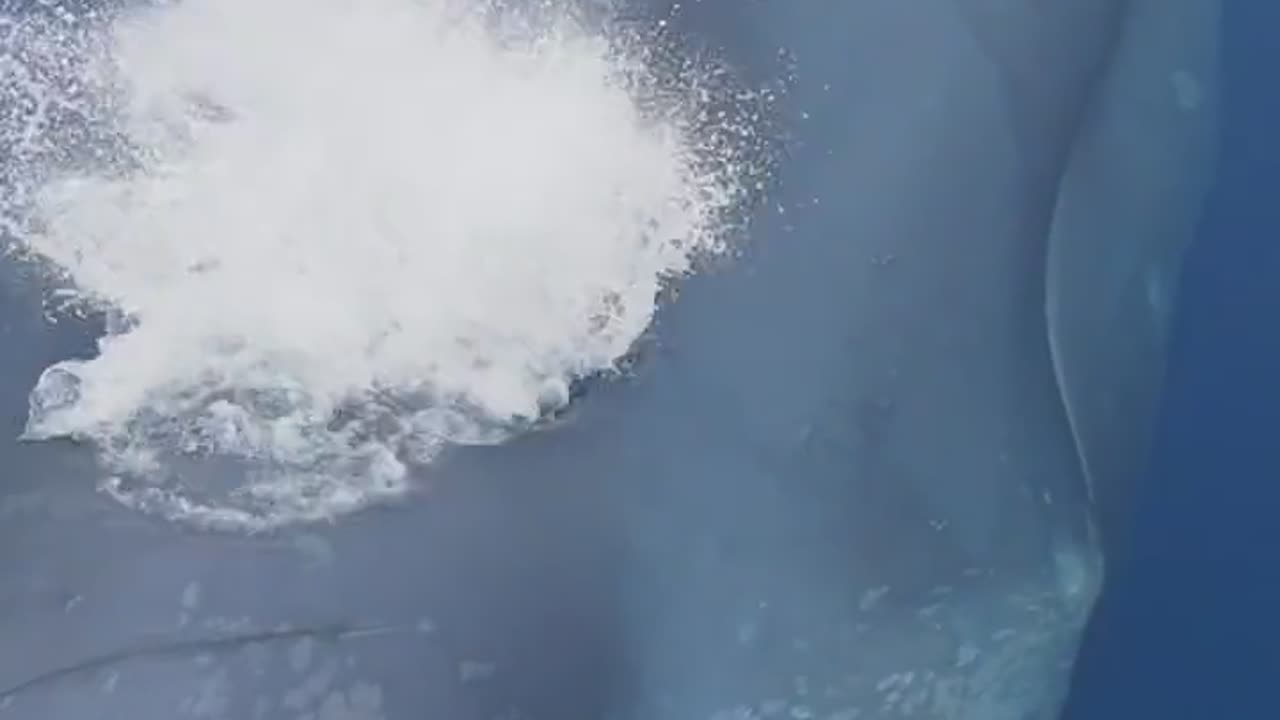Premium Only Content

Whale Unique Respiratory System
The whale has a unique respiratory system that allows it to remain underwater for long periods of time without taking in oxygen
When it rises to the surface of the water, it fills its lungs with fresh air
After each breath, the blowhole is closed by strong muscles so that water does not enter the lungs.
The unique respiratory system of whales is a fascinating adaptation that allows these marine mammals to thrive in their underwater environments. Here's a brief overview:
Blowhole: Whales breathe through a specialized nostril called a blowhole, located on the top of their heads. Unlike most land mammals that breathe through their mouths and noses, whales only breathe through their blowholes.
Lungs: Whales have large, highly efficient lungs that can hold a substantial amount of air. These lungs allow them to take in a sufficient oxygen supply when they surface to breathe.
Diving Abilities: Whales can hold their breath for extended periods. The duration varies among species, with some whales capable of remaining submerged for up to an hour or more. This remarkable breath-holding ability is vital for hunting, escaping predators, and exploring the depths of the ocean.
Blowhole Mechanism: When a whale surfaces, it exhales forcefully through its blowhole, expelling a spout of air and moisture. The moisture in this spout comes from the water droplets in the whale's respiratory system.
Muscular Control: Strong muscles around the blowhole allow whales to open and close it rapidly. After taking a breath, the blowhole is tightly closed to prevent water from entering the respiratory passages.
Countercurrent Exchange: Whales have a countercurrent exchange system in their circulatory system. This mechanism helps conserve oxygen by efficiently distributing it to the vital organs and muscles, even during deep dives when oxygen is scarce.
Myoglobin: Whales have high levels of myoglobin, a protein that stores oxygen in their muscles. This helps sustain their oxygen needs during extended dives.
Slow Heart Rate: While diving, a whale's heart rate can slow significantly to conserve oxygen. This adaptation allows them to make the most of their oxygen supply while submerged.
Overall, the unique respiratory system of whales is a marvel of evolution, enabling these magnificent creatures to thrive in the ocean's depths and emerge at the surface to breathe without taking in seawater.
-

Right Side Broadcasting Network
7 hours agoLIVE: President Trump Hosts a Press Conference with FBI Director Kash Patel - 10/15/25
92.1K10 -
 LIVE
LIVE
Dr Disrespect
6 hours ago🔴LIVE - DR DISRESPECT - BATTLEFIELD 6 - THE PERFECT WEAPON
1,499 watching -
 44:24
44:24
Clownfish TV
3 hours agoCNN is Angry 'The Male Gaze' Returned! TRADWIVES and SYDNEY SWEENEY are Blamed?! | Clownfish TV
5.09K6 -
 LIVE
LIVE
LFA TV
19 hours agoLIVE & BREAKING NEWS! | WEDNESDAY 10/15/25
1,406 watching -
 UPCOMING
UPCOMING
freecastle
5 hours agoTAKE UP YOUR CROSS- CONTEND earnestly for the FAITH once for all entrusted to the Saints!
1151 -
 1:09:38
1:09:38
vivafrei
2 hours agoLiquid Death-Gate! Text Message-Gate! Ostrich-Gate! AN
57K21 -
 LIVE
LIVE
The HotSeat
1 hour agoAmericans Are Turning Back to God — While Terror Rises Again in Gaza
710 watching -
 LIVE
LIVE
Owen Shroyer
1 hour agoOwen Report - 10-15-2025 - Government Shutdown Political Slop Show Continues
1,236 watching -
 1:26:01
1:26:01
The Quartering
3 hours agoYoung Republican Smear, Woke Sidewalks Washed Away, Major Changes To X & More
90.2K32 -
 1:36:03
1:36:03
Darkhorse Podcast
4 hours agoThe 296th Evolutionary Lens with Bret Weinstein and Heather Heying
16.3K10